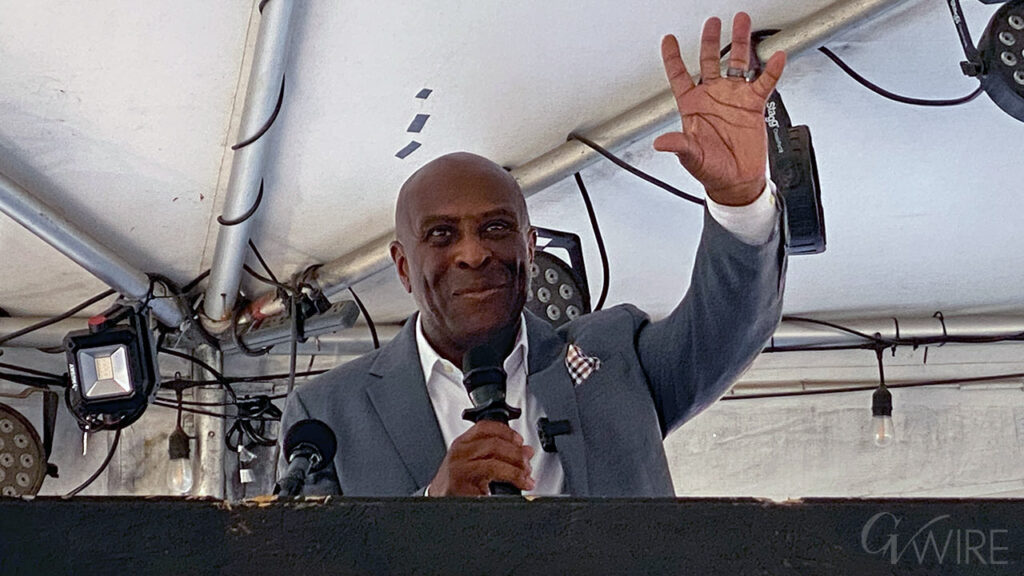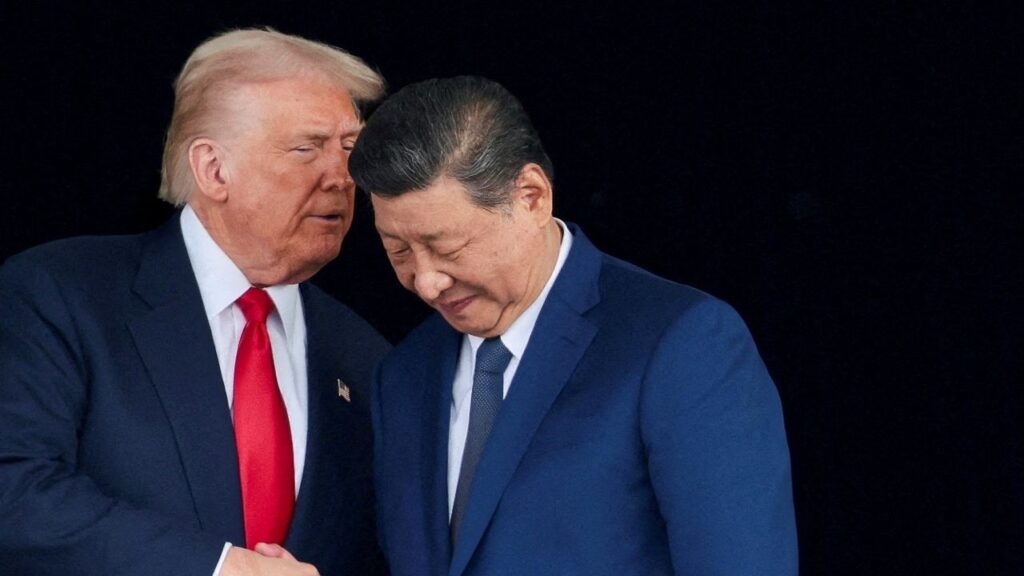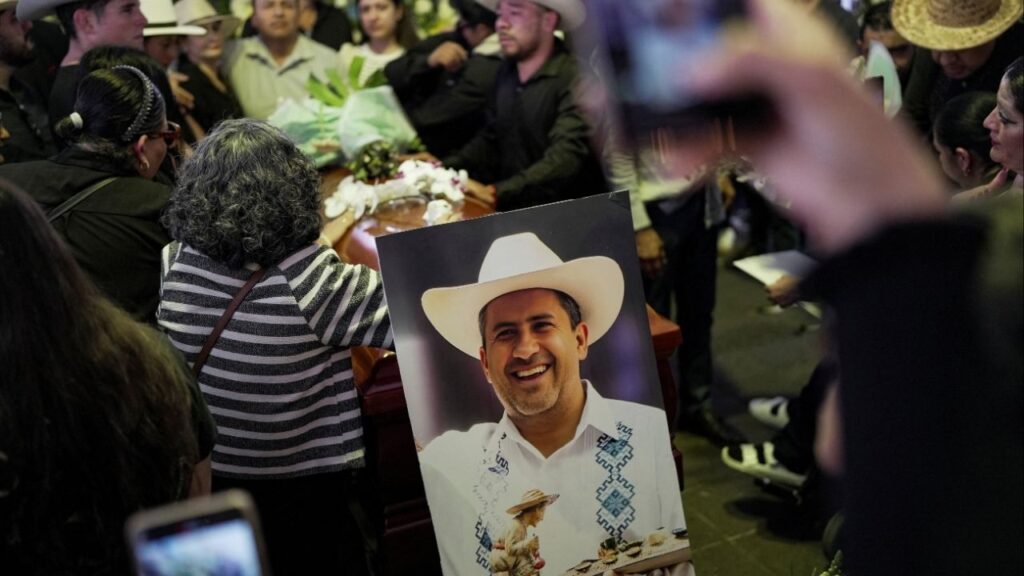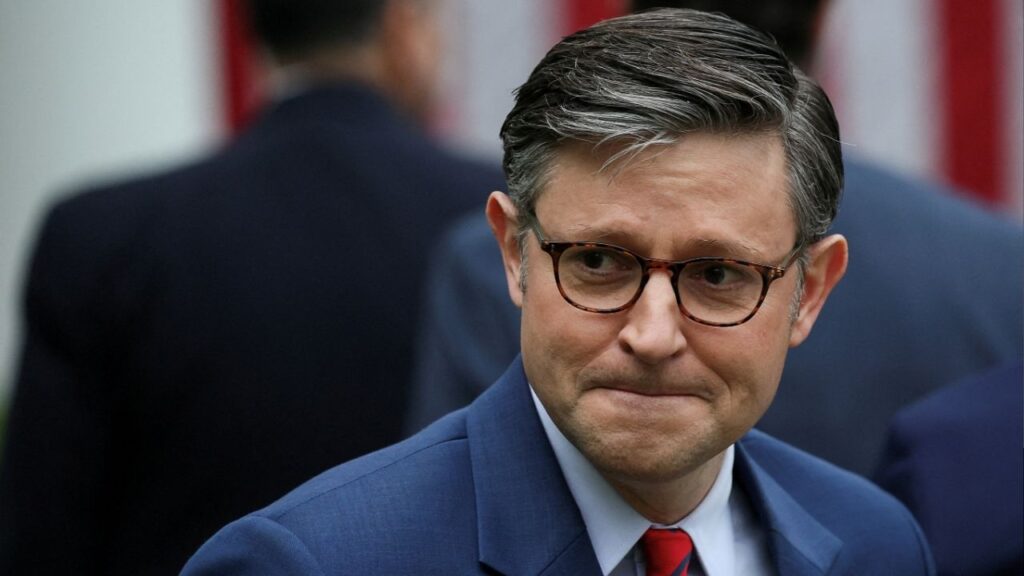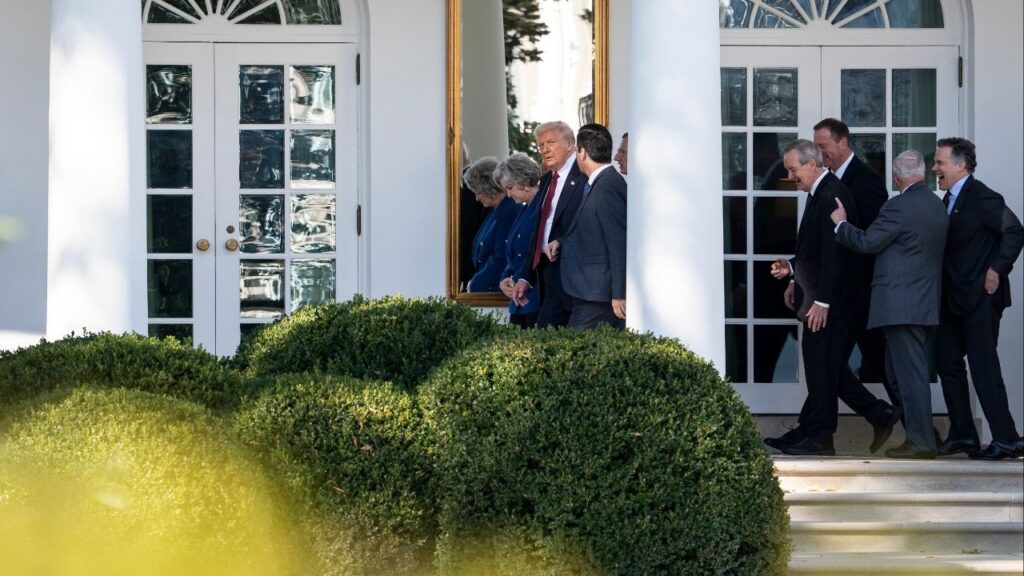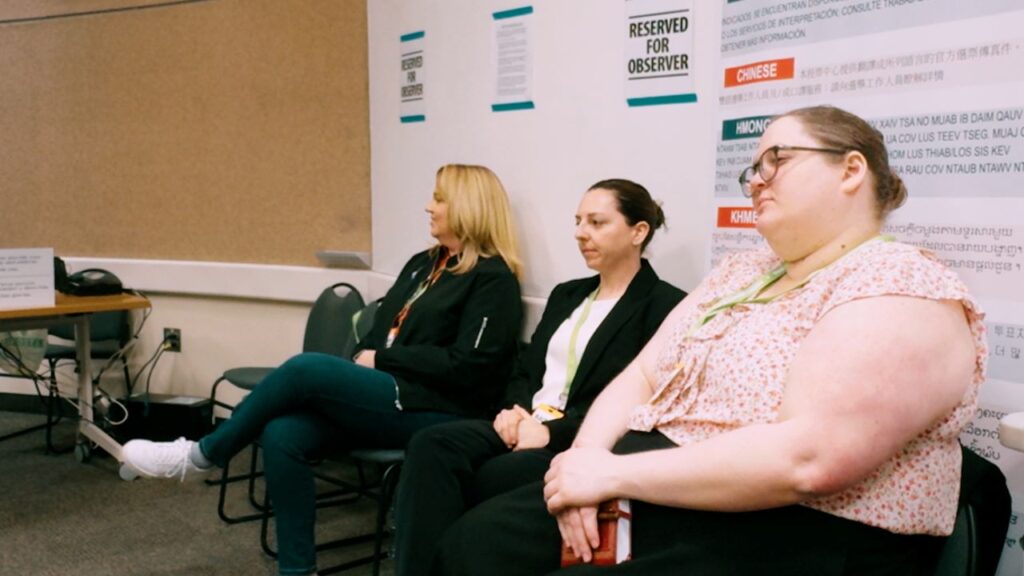A banner showing "If they commit any acts of evil, they will definitely get a harder blow back,” in Tehran on Saturday, April 12, 2025. Preliminary diplomatic talks between American and Iranian officials over Tehran’s nuclear program ended on Saturday with a senior Iranian official calling them “positive” and saying they would resume next week. (Arash Khamooshi/The New York Times)

- Talks mark the first potential face-to-face negotiations since the U.S. left the 2015 nuclear accord seven years ago.
- Iran seeks trust-building and a negotiation timeline but resists discussing full nuclear program dismantlement.
- Tensions rise as Israel pushes for destruction of Iran's nuclear sites, while the U.S. seeks a diplomatic solution.
Share
Preliminary diplomatic talks between U.S. and Iranian officials over Iran’s nuclear program ended Saturday with a senior Iranian official calling them “positive” and saying they would resume next week.
Depending on what comes next, they could lead to the first official face-to-face negotiations between the two countries since President Donald Trump abandoned a landmark nuclear accord seven years ago.
Iranian Foreign Minister, Abbas Araghchi, said just after 10:15 a.m. Eastern on Saturday that the indirect talks had concluded. Iran’s official media said the talks had been “constructive and positive, and based on mutual respect,” and had included a discussion of the nuclear program. They are set to resume April 19, he said.
A statement from Iran’s Foreign Ministry said that Steve Witkoff, Trump’s special envoy leading the administration’s effort, and Araghchi had met in person for a few minutes as they were leaving the compound.
Araghchi said going into the meeting that the goal of the talks had been to build trust and to reach an agreement on the framework and timeline for negotiations on the nuclear program. Iran had indicated that if the United States put full dismantlement of its nuclear program on the table, it would walk away from talks.
A U.S. official did not immediately respond to questions about what terms the Trump administration representatives had discussed.
Initial Goals and Deep Distrust
The talks, in the Gulf nation of Oman, were a feeling-out session to see whether the Trump administration and Iran’s clerical leaders could move to full negotiations to limit Iran’s nuclear activities.
The Iranian state news media reported that the talks began midafternoon in Muscat, the Omani capital, which U.S. and Iranian diplomats have used as neutral negotiating territory for years.
The two sides came in with deep distrust, given that Trump walked away from the 2015 accord that Iran had brokered with the United States and other world powers, and then imposed harsh sanctions on Iran during his first term.
Trump now wants to strike a deal — both to showcase his negotiating skills and to keep simmering tensions between Iran and Israel from escalating into a more intense conflict that would further roil the Middle East.
“I want Iran to be a wonderful, great, happy country, but they can’t have a nuclear weapon,” he told reporters Friday night aboard Air Force One.
Iranian officials were skeptical but open to “a chance for an initial understanding that would mark a path for the negotiations,” Araghchi said Saturday before the talks began.
The talks began during the 2024 presidential campaign, when Iran-backed hackers targeted aides to Trump and President Joe Biden, officials said, succeeding with some Trump officials. Shortly after Election Day, the Justice Department announced charges against a man involved in an alleged Iranian plot to assassinate Trump.
The goals of Saturday’s meeting were modest, reflecting the gap between the two sides: to agree on a framework for negotiations and a timeline.
Oman’s foreign minister, Badr al-Busaidi, met separately with Araghchi and Witkoff to outline the format for the talks. The Iranian delegation had planned to convey that it is open to talking about scaling back uranium enrichment and allowing outside monitoring of its nuclear activity, according to two senior Iranian officials who spoke on the condition of anonymity to discuss a sensitive matter. They said negotiators were not interested in discussing dismantlement of the nuclear program, which some Trump administration officials, including Michael Waltz, the national security adviser, have publicly insisted on.
Witkoff, however, has suggested a different so-called red line, telling The Wall Street Journal that such a marker would be the development of a nuclear weapon and indicating it would not be the enrichment program itself.
What’s at Stake?
At issue is the dwindling power of the original nuclear deal — which European leaders have kept limping along since 2018, when Trump withdrew the United States. The deal’s most punishing restrictions expire in October.
Known as the Joint Comprehensive Plan of Action and completed under President Barack Obama, the accord was the result of years of painstaking and technical negotiations that agreed to lift international sanctions against Iran in exchange for limits on its nuclear program.
Only nine countries are known to have nuclear weapons, and adding Iran to the list could pose an existential threat to its main adversary, Israel, and other nations. Experts also have raised concerns that Iran could share its nuclear capabilities with terrorist groups.
Iran has long maintained that its nuclear activities are legal and meant only for civilian purposes, like energy and medicine. But it has highly enriched uranium, beyond the levels necessary for civilian use, which can be used to make a nuclear warhead.
In the years since Trump withdrew from the nuclear accord, Iran has steadily accelerated uranium enrichment to the point where some experts estimate that it could soon build a nuclear weapon. Its economy has crumbled under U.S. sanctions, and Trump this past week imposed new measures targeting Iran’s oil trade.
Israel’s government worries that Iran will expand its nuclear program and is pushing to destroy it.
“The deal with Iran is acceptable only if the nuclear sites are destroyed under U.S. supervision,” Israeli Prime Minister Benjamin Netanyahu said this past week. “Otherwise, the military option is the only choice.”
Iran will all but certainly extend diplomatic talks for as long as possible — both to delay Israeli military action and to push past an Oct. 18 deadline when the United Nations’ authority to impose quick “snapback” sanctions on Iran expires.
“They have an opportunity to tie Israel and the United States in knots by getting into negotiations in which they dupe Witkoff into thinking that negotiations will produce a lot,” said Elliott Abrams, who served as Trump’s Iran envoy during his first term. “And so the negotiations start, which holds Israel off, and they continue, and they continue.”
A new deal could be reached pretty quickly, he said, but Iran would most likely commit to little more than what it agreed to in the 2015 accord. Such an outcome would irritate Israel.
Diplomacy or Conflict?
Abrams predicted that Israel would eventually strike Iran anyway. Since at least last fall, Israel has been preparing highly precise long-range missiles, including ones that can hit underground targets, for an airstrike on Iran.
The Trump administration also has deployed an extraordinary military buildup in range, including two aircraft carriers, additional B-2 stealth bombers and fighter jets, as well as air defenses.
Yet Trump keenly wants to avoid a new war in the region, which his advisers have warned would siphon military resources away from other potential threats, like China, and detract from his efforts to be a president of peace.
Still, Trump has said he is prepared for the worst.
“If it requires military, we’re going to have military,” he said Wednesday, adding that Israel would “obviously be the leader of that.”
Iran is also steeling itself.
“Mark my words: Iran prefers diplomacy, but it knows how to defend itself,” Araghchi said recently. “We seek peace but will never accept submission.”
—
This article originally appeared in The New York Times.
By Lara Jakes, Farnaz Fassihi and Maggie Haberman/Arash Khamooshi
c. 2025 The New York Times Company






